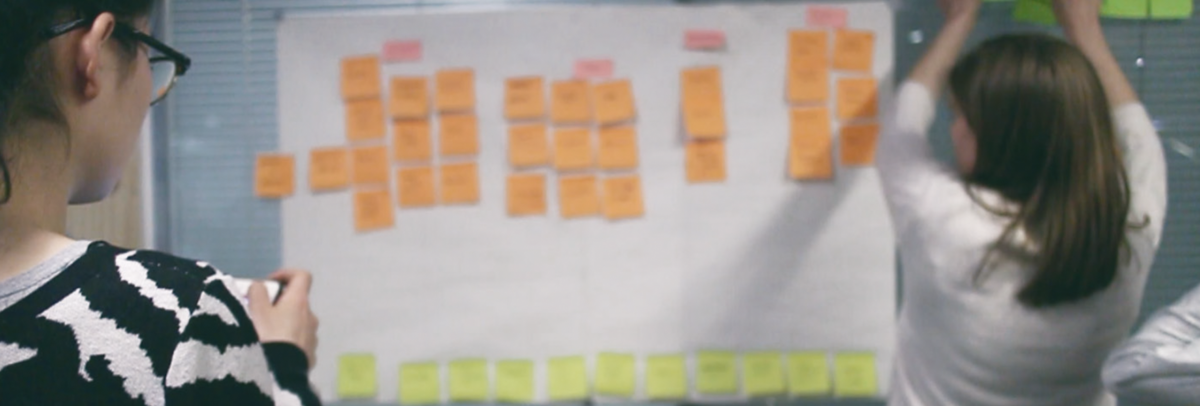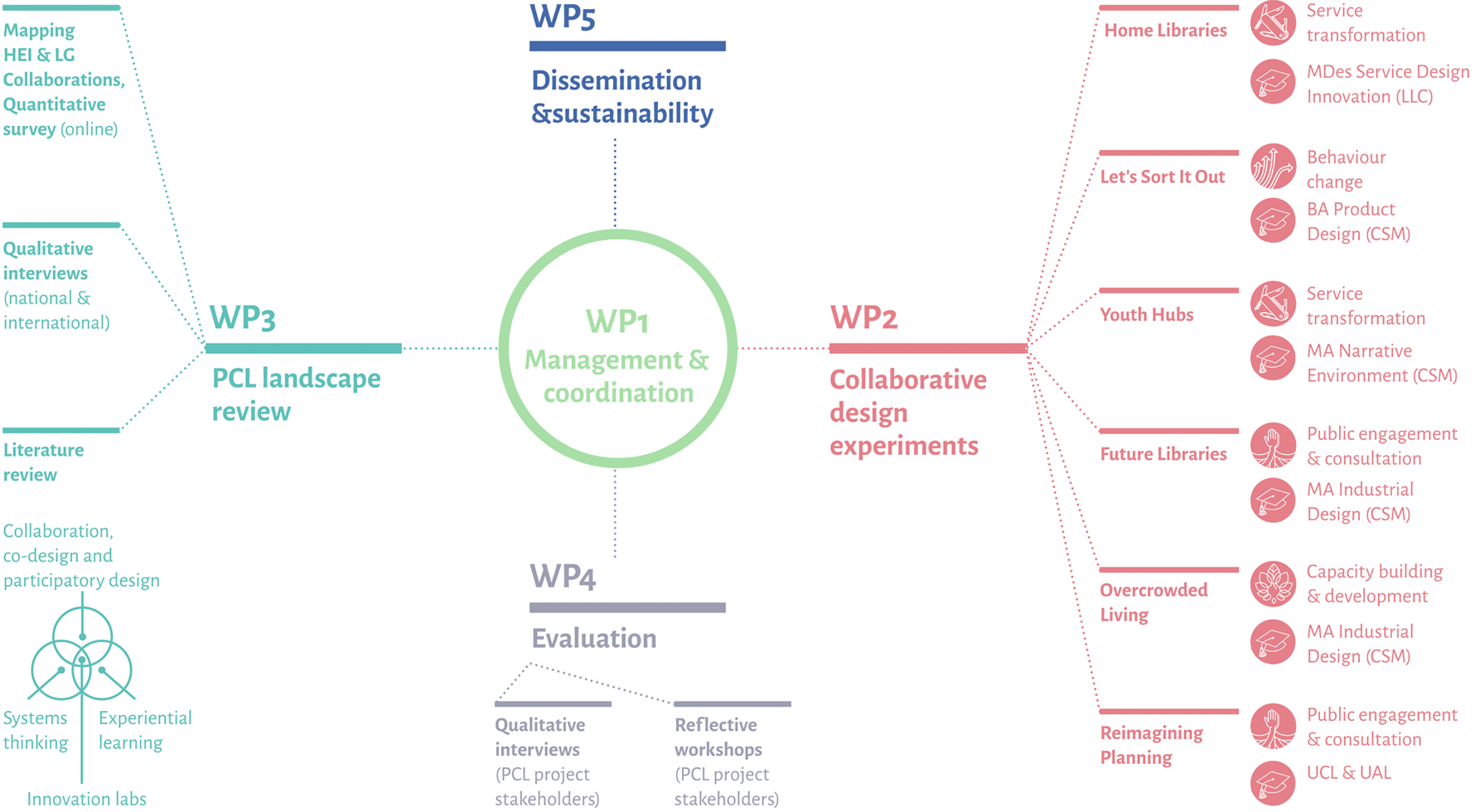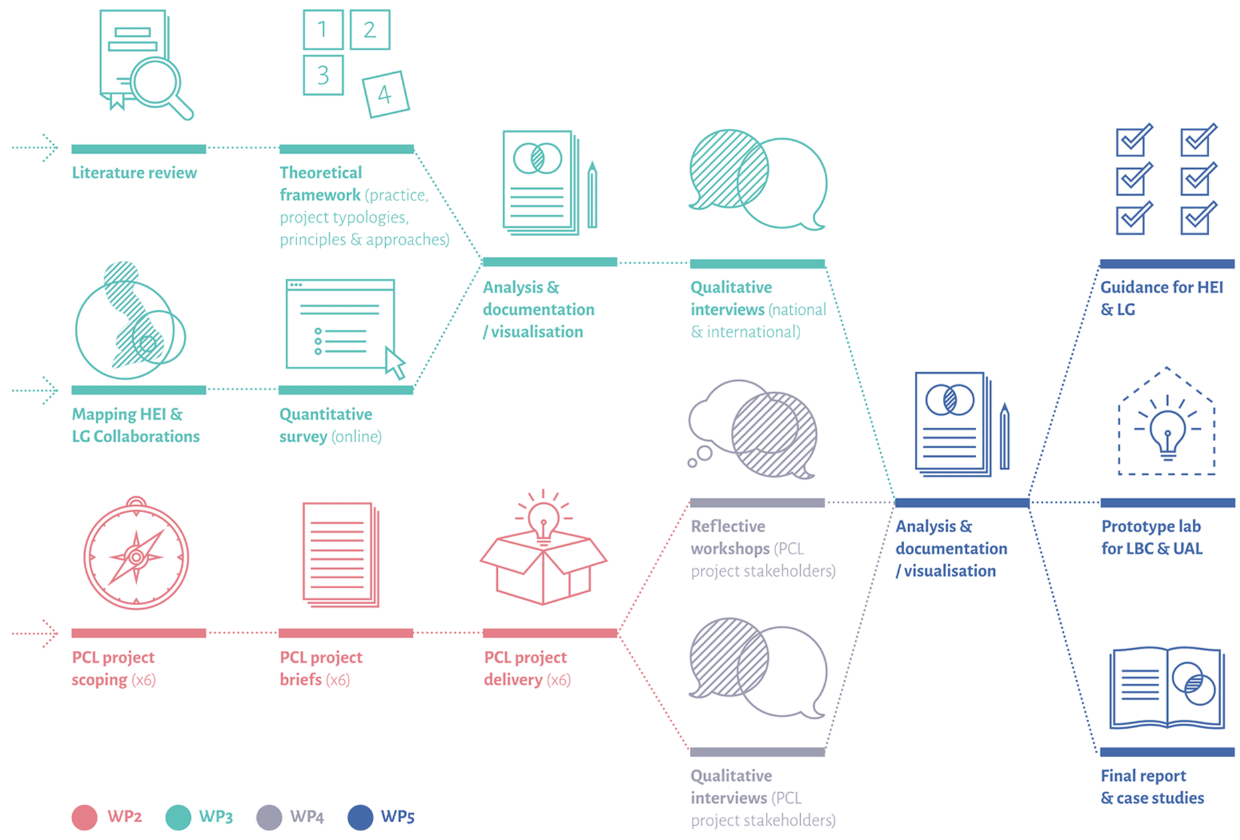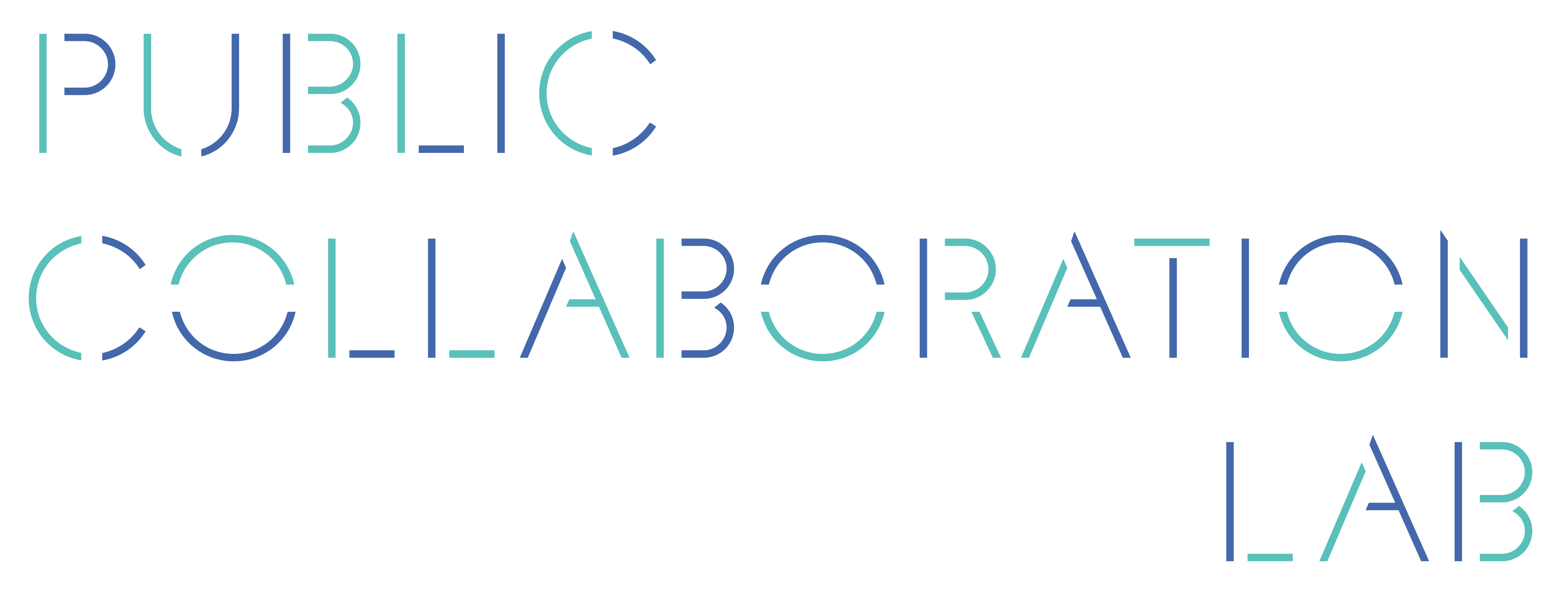
Research
Funded by the Arts and Humanities Research Council the Public Collaboration Lab began as an 18 month participatory action research project in 2015-16. The project explored the question: ‘How can design education and local government work together to improve outcomes for citizens?’
It developed a prototype that was:
– A model for a way of working that could be trialled and tested– A space for experiential learning and experimentation
– A space for learning together by doing together
It aimed to:
– Increase understanding of design universities’ role in supporting innovation practices within local government, through design-led action research– Explore the potential for co-designing to democratize public service and policy innovation and improve public outcomes
– Evaluate the role and impact of design in local government service reform
– Propose means by which effective practices might be scaled up and scaled out within other contexts
Research structure
The research was delivered across five work packages that structured research activities as shown below.

Research methodology
Research activities included a literature review of relevant research and an online survey and exploratory interviews with design academics and local government officers with experience of local government/design education collaboration. Also, a series of expert workshops involving participants from local government, design education and elsewhere, focused on topics arising from the research.
Central to the research was the co-design and delivery of 6 ‘collaborative design experiments’ ranging from 4 weeks to 6 months in duration. These ‘collaborative design experiments’ are shared in the ‘projects’ section of this website.
The research methodology is illustrated below.

